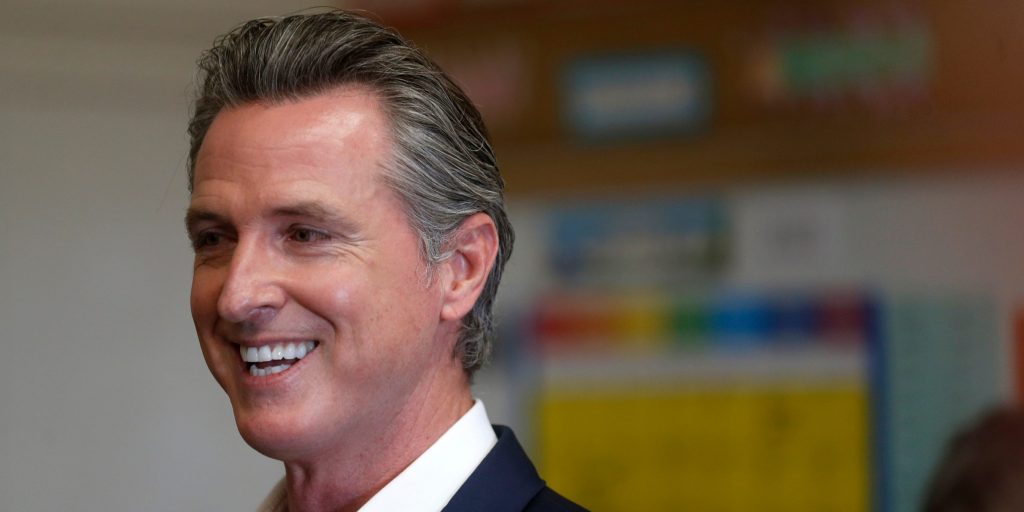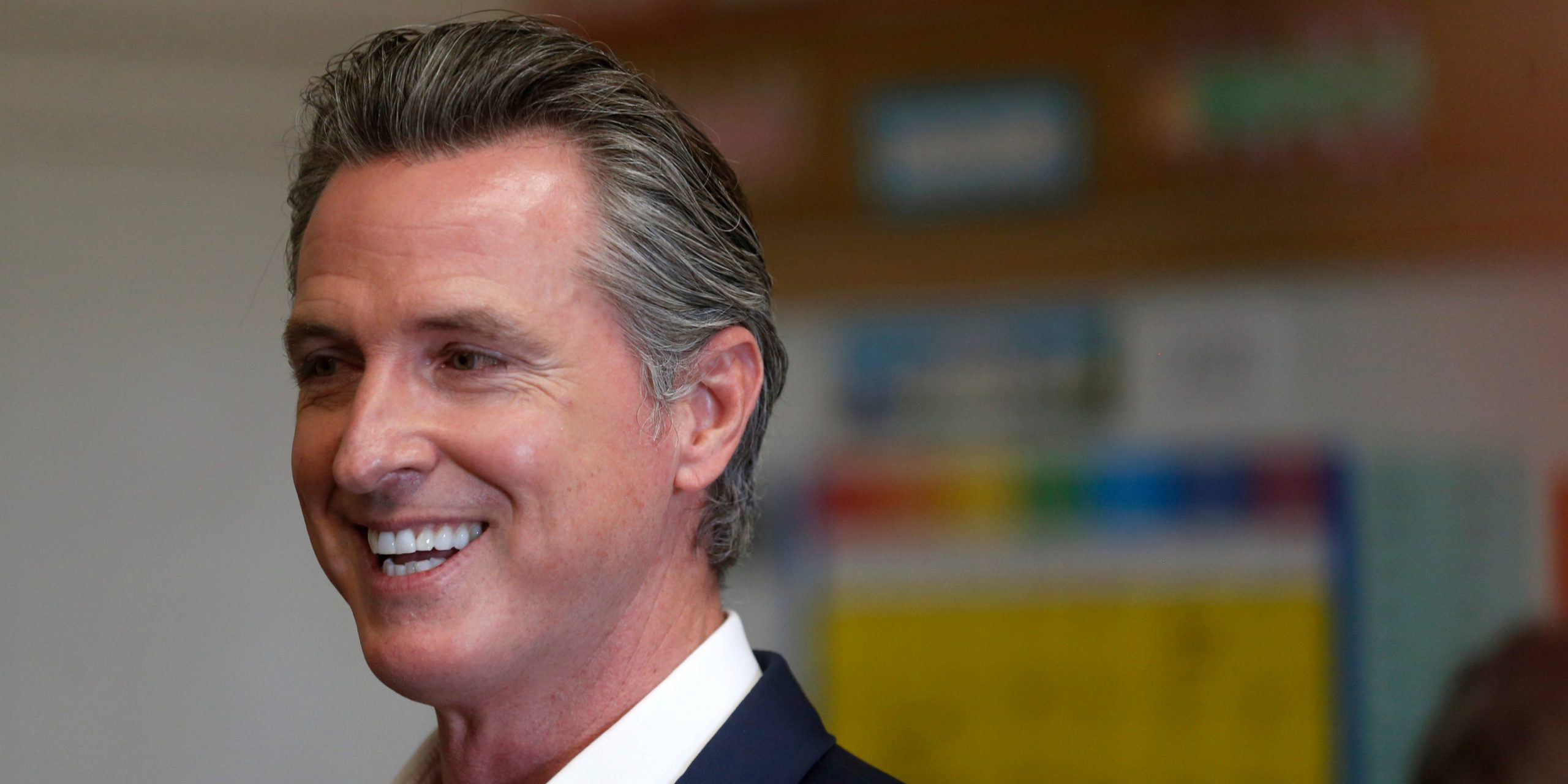
Jane Tyska/Digital First Media/East Bay Times via Getty Images
Democratic Gov. Gavin Newsom of California last Tuesday survived the biggest test of his leadership by rallying voters against a gubernatorial recall election fueled by grievances over COVID-19 restrictions, housing affordability, uneven economic opportunities, and homelessness.
While the eventual recall was a blowout in the governor's favor, there were underlying issues that seriously threatened his standing earlier in the summer – the lack of urgency among Democratic voters, minimal engagement with the state's growing Latino population, and the conservative buzz surrounding radio talk show host and first-time political candidate Larry Elder, who was able to channel the frustrations of millions of state residents.
As California continues to count its remaining ballots, a fuller picture is emerging of Newsom's win.
With 92% of the vote in, voters rejected the recall effort by a 63% to 37% margin, nearly identical to the 2018 gubernatorial election results, when Newsom defeated Republican businessman John Cox by a 62% to 38% spread.
But the huge victory also exposed Newsom's vulnerability in not connecting with more voters on a personal level.
Dan Schnur, who teaches political communication at the University of Southern California and the University of California-Berkeley, pointed out that Newsom was able to win despite his fairly average standing among many Democratic voters.
"The final results obscure the fact that he's never been particularly well-loved, even by the base of his own party," he said.
This account, based on interviews with California political observers and the recount data, focuses on the governor's broad victory and what it says about the future of Golden State politics.
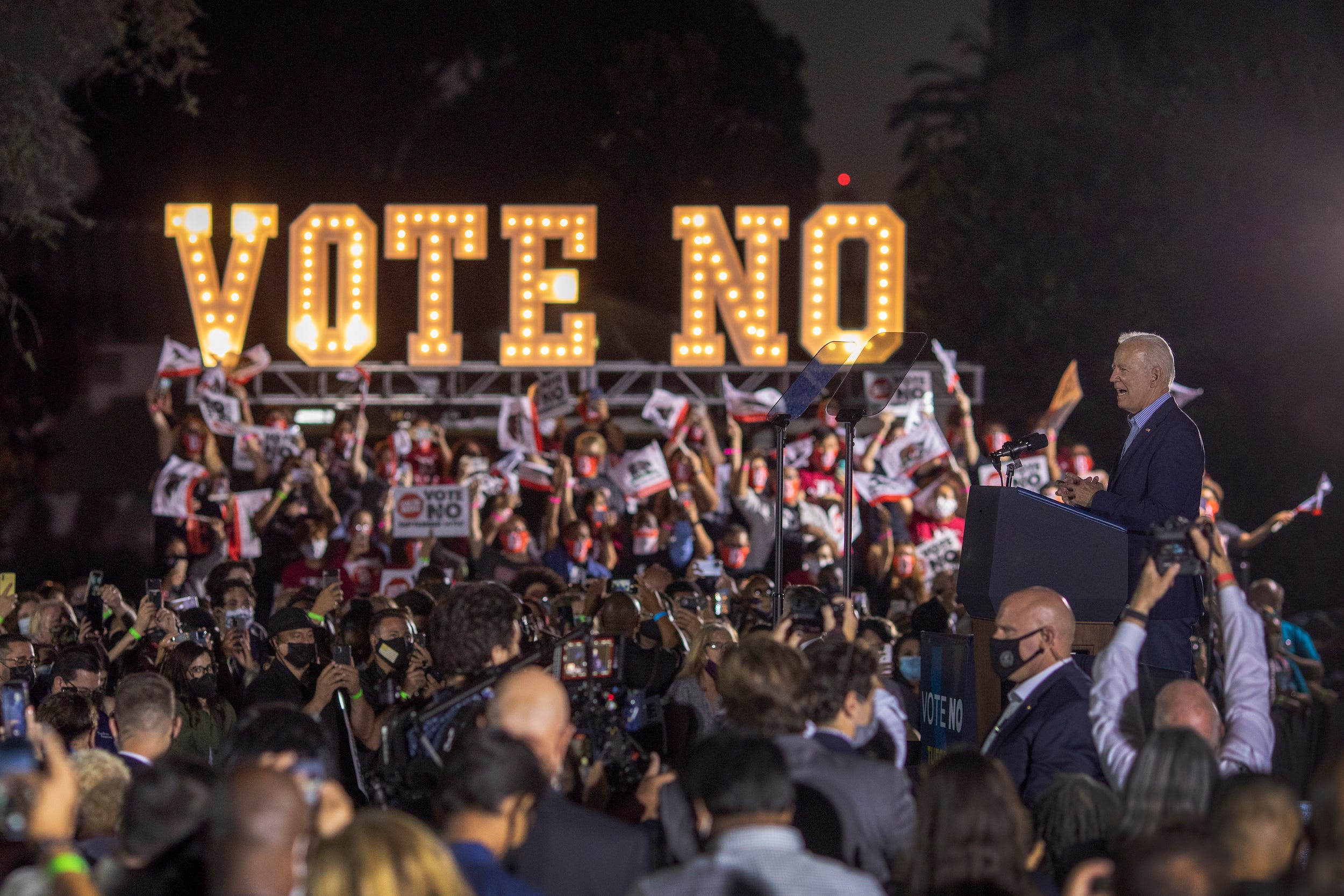
David McNew/Getty Images
Newsom overcame complacency and turned out Democrats
California has become such a Democratic stronghold at the presidential level that now-President Joe Biden's win over former President Donald Trump (63.5% to 34%) last fall was a foregone conclusion.
While Biden received over 11 million votes - a record for a presidential candidate in the state - Trump received over 6 million votes, which was the highest number of votes for any Republican candidate in state history.
Democrats currently make up 46.5% of all registered voters in California, while Republicans make up 24% and independents comprise of 23%, according to the Public Policy Institute of California - which by the numbers would indicate a huge advantage for Newsom.
However, voter turnout is key, and tepid party support, combined with Republican enthusiasm about Elder's candidacy, threatened to derail Newsom, especially as he struggled to connect with some of the very same voters who sent him to the Governor's Mansion nearly three years ago.
In a Berkeley-IGS survey that was released in July, registered Democrats, by a nearly 30% margin, were less likely than Republicans to demonstrate a high level of engagement in the recall election - one of many polls that caused consternation among Democratic leaders.
Conservatives, incensed by what they felt were heavy-handed COVID-19 restrictions that hurt small businesses and stifled the economy, were animated over potentially recalling Newsom, a former San Francisco mayor and lieutenant governor. The July Berkeley survey showed that 33% of the voters who were likely to vote in the recall would be Republicans - a troubling sign for the governor.
After recalibrating and partaking in a rigorous campaign schedule, including rallies with President Joe Biden and Vice President Kamala Harris, Newsom was able to to change the dynamics of the race by emphasizing Elder's opposition to key issues including abortion rights and COVID-19 vaccine mandates.
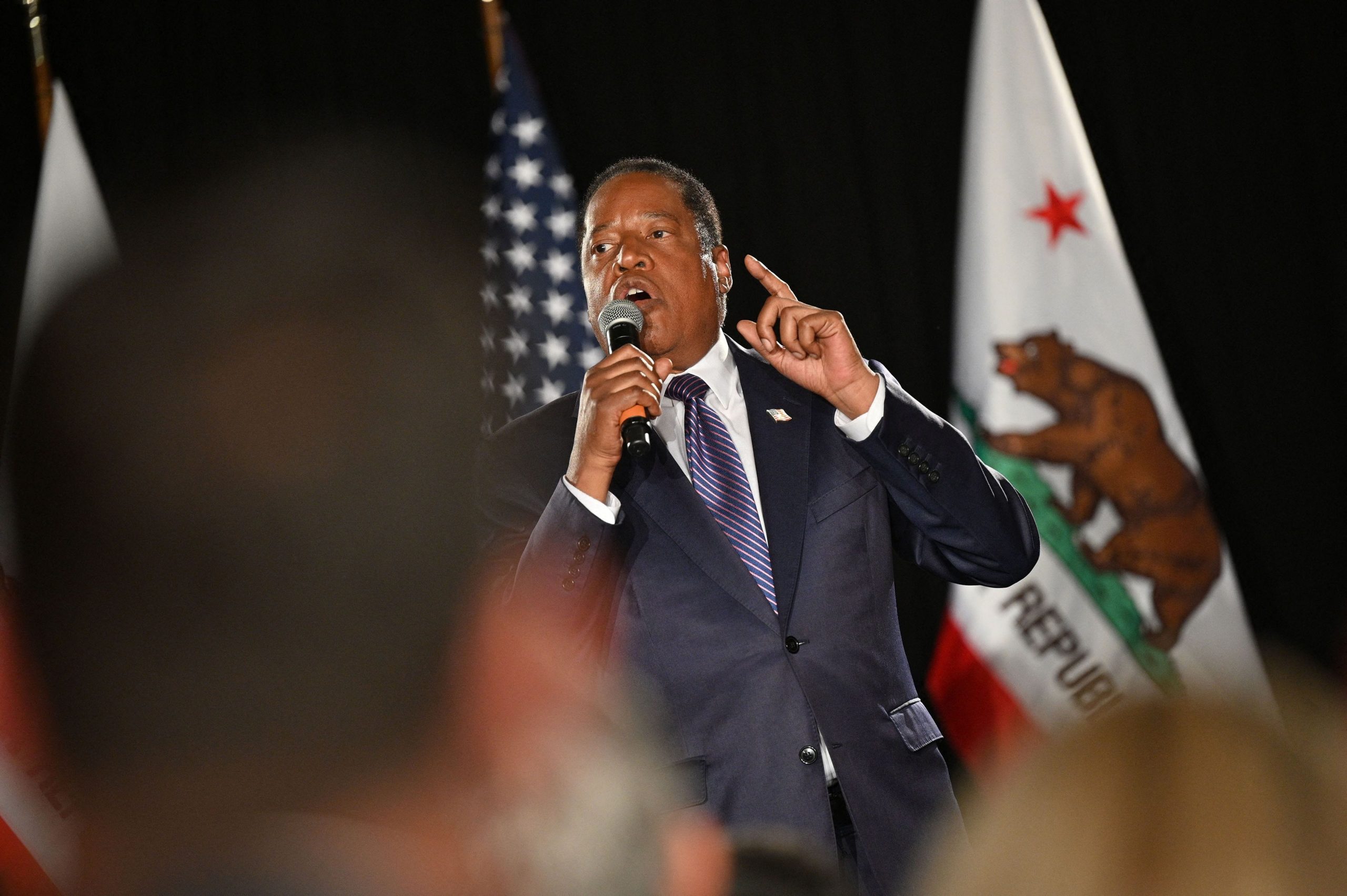
ROBYN BECK/AFP via Getty Images
Larry Elder was not an appealing candidate to non-Republicans
In the previous California gubernatorial recall election in 2003, then-Democratic Gov. Gray Davis was booted from office and replaced with Republican Arnold Schwarzenegger.
Schwarzenegger - a Hollywood leading man famous for action movies like "The Terminator" represented a moderate wing of Republicanism that was still influential in the state at the time - won over his party and peeled off independents and even some Democrats.
This year, Democrats overwhelmingly opposed against the recall on the first ballot question and largely abandoned picking another candidate to become governor if the recall was successful.
Elder, a fierce advocate of small government who opposed the minimum wage, dismissed gender wage gaps, balked at gun-control measures, and supported charter schools and school choice, was unable to garner much support beyond the Republican base, which comprised of roughly 25% of the electorate in the recall election.
According to exit polling conducted for CNN and other outlets by Edison Research, 94% of Democrats opposed the recall, while 89% of Republicans supported it, with independents narrowly rejecting the effort by a 52%-48% margin.
While Elder currently sits at 47.8% of the vote, having earned over 3.1 million votes on the ballot question designating a gubernatorial successor, the rejection of the recall effort at the top of the ballot kept Newsom in office.
Schnur told Insider that Elder's positions allowed Newsom to effectively use Trumpism as a political foil.
"Newsom was originally having some trouble framing this as a campaign against Donald Trump, primarily because Trump wasn't on the ballot or in the White House," he said. "Elder gave Newsom a way of framing the anti-Trump argument in the present tense. Instead of talking about the former president, he was able to talk about something that voters were facing now, and that helped him immeasurably."
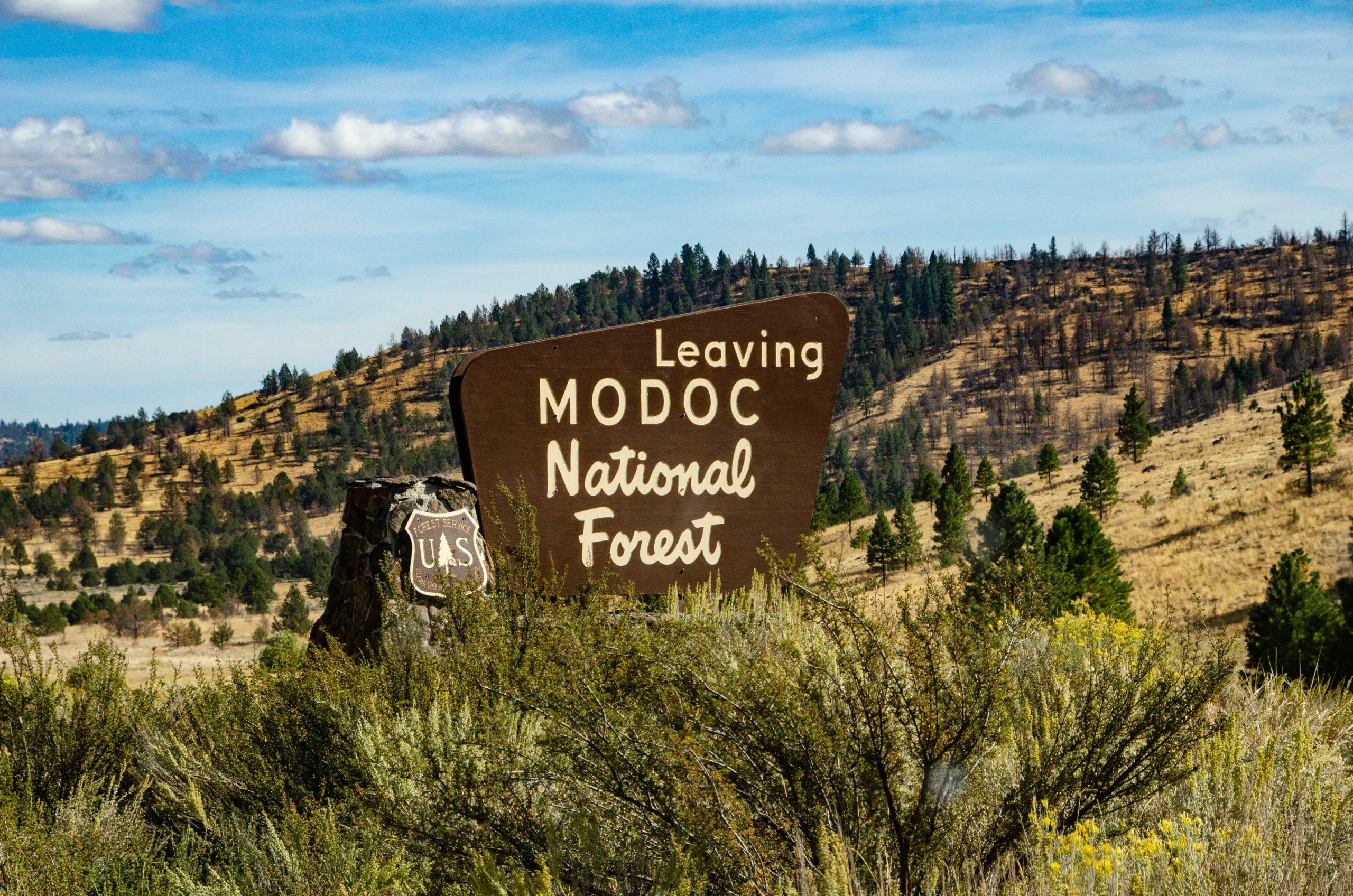
Bernard Friel/Education Images/Universal Images Group via Getty Images
California has 'shades of blue in many communities of red'
The modern image of California is largely shaped by its glittering Los Angeles skyline and the tech corridors of the San Francisco Bay Area, but the state is much more conservative in its interior stretches, where the election results of many counties largely mirrored the 2020 election.
In rural northern California, counties like Lassen (84%), Modoc (78%), Tehama (69%), and Shasta (67%), voted overwhelmingly in favor of the recall - and subsequently these counties strongly backed Elder as their top choice in the second ballot question.
While Elder's strong conservative views, including his opposition to broad COVID-19 restrictions, appealed to many in these counties, as well as a significant number of residents in the state's exurban communities, it wasn't enough to appeal to a wider audience - which has been the dilemma of the California GOP for years.
The state party, which launched the careers of former Presidents Richard Nixon and Ronald Reagan, has not won a gubernatorial race since Schwarzenegger's reelection bid in 2006.
Mindy Romero, the founder and director of the Center for Inclusive Democracy at the University of Southern California, told Insider that while the state's political ideology is more multifaceted than its reputation suggests, the GOP in recent years has continued to elevate candidates that lack appeal on a statewide level.
"The problem for the Republican Party is that politics is local," she said. "I actually say that we're not deep blue. I say that we're shades of blue in many communities of red. In those red communities, we have a lot of elected officials, including members of Congress, who are Republicans. Some of the messaging that they use that works in those communities is antithetical to many Democrats. But at a local level, the messaging works and helps them politically."
She added: "It's hard for Republicans to make ground, because locally, they're going to put forth candidates that are going to be more to the right."
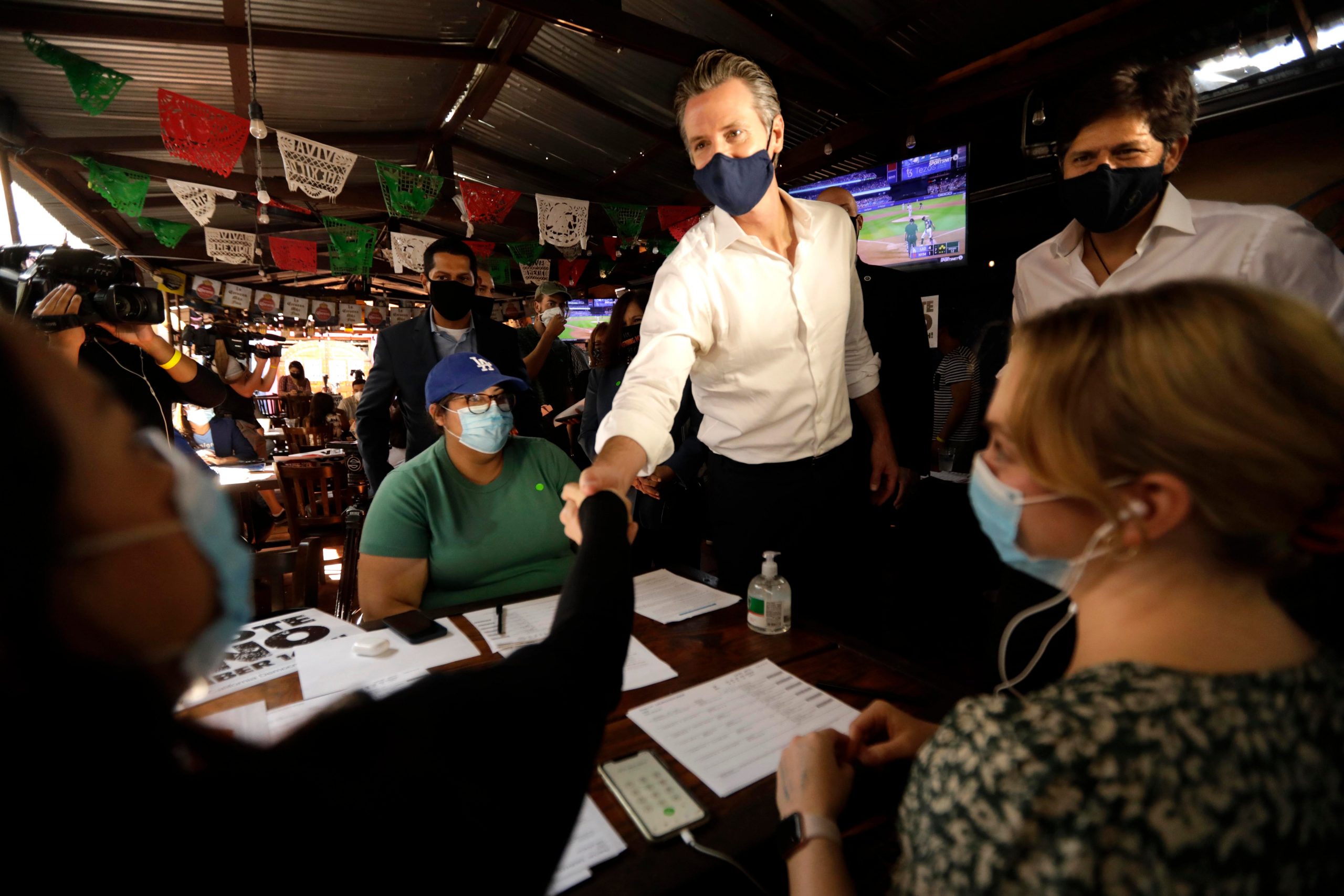
Genaro Molina / Los Angeles Times via Getty Images
Latino voters, a growing slice of the electorate, backed Newsom
Latino residents now make up 39% of California's population and are the largest ethnic group in the state - according to the exit polling conducted by Edison Research, they made up 24% of the electorate in the recall election.
For much of the summer, Democrats fretted that they weren't doing enough to appeal to this critical slice of the electorate, especially as Elder campaigned hard for Latino, Black, and Asian votes.
However, in representing nearly a quarter of the vote in the recall election, the Latino vote was key in the eventual outcome.
According to the Edison exit polling, Latino voters rejected the recall effort by a 60%-40% margin.
But there were signs of concern for Democrats, even with the broad victory.
Newsom actually lost ground with Latinos, albeit slightly, from his 2018 gubernatorial victory, when he carried the group with 64% of the vote, according to NBC exit polling.
For Democrats, the question remains: How can the party engage with this diverse slice of the electorate in a meaningful way?
Romero told Insider that both parties have a chance to improve their relationship with Latinos, but said that Democrats, who count on the group as part of their base, should have done more outreach this year.
"Both parties have a chance with the Latino vote because it's not monolithic," she said. "Newsom's campaign did not reach out to Latinos as it could have. There was lot of work by community organizations and by unions that it looks like helped bring out a lot of Latinos, but in terms of the party-driven work, it was either late or it didn't happen in the way that you would expect."
She added: "Democrats will have to work on addressing Latino issues and having better relationships with Latino organizations, and essentially not taking the Latino vote for granted."
